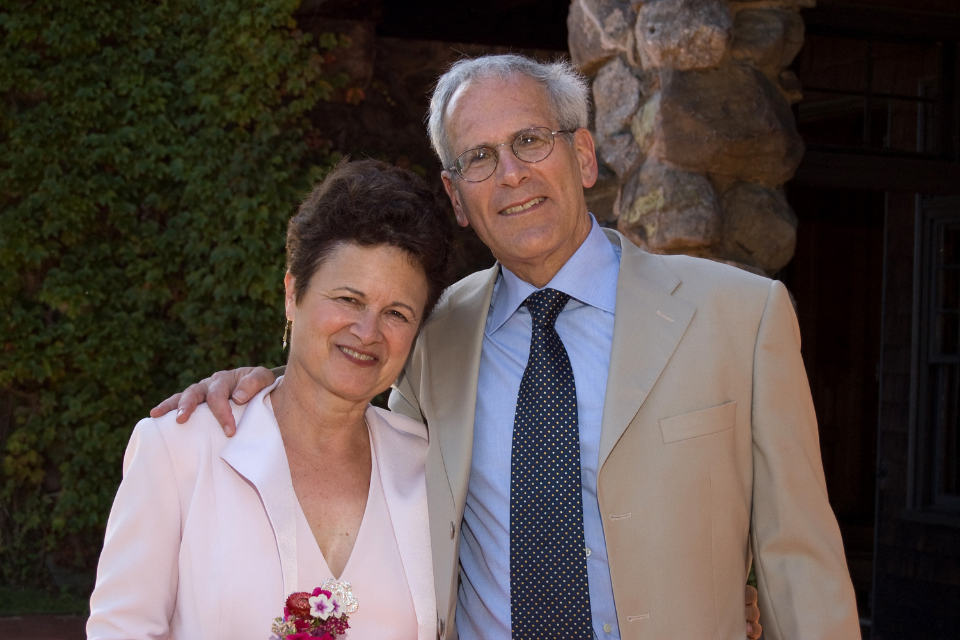Brandeis Alumni, Family and Friends
New Fellowship Memorializes Alumnus Who Fought for Individuals with Disabilities
July 30, 2018

By Brian Klotz
As Renee Brant ’68 explains, it wasn’t unusual for her late husband, Jonathan Brant ’68, to get a call in the middle of the night, suddenly having to leave their house to take part in legal proceedings that, by necessity, occurred on the spot in a hospital. As a lawyer, and later a judge, Jonathan fought tirelessly for the rights of individuals with disabilities, including children whose parents attempted to deny them proper medical care.
To honor the memory of her husband, who died in 2010, Renee has established the Hon. Jonathan Brant ’68 Endowed Fellowship, which will create educational opportunities for deserving doctoral students working with the Lurie Institute for Disability Policy within the Heller School for Social Policy and Management at Brandeis. The gift also commemorates the 50th anniversary of their graduation from their alma mater.
Renee and Jonathan met on campus during their freshman year. Jonathan grew up in Ohio and Kansas, while Renee came from Minnesota. “We were introduced as two hicks from the Midwest who deserved one another,” she recalls. “And we were, and we did.”
Both were drawn to Brandeis by its emphasis on social justice. Jonathan particularly enjoyed sharing a campus with prominent counterculture figures such as Angela Davis ’65 and Herbert Marcuse during the turbulent ’60s. He engaged in peaceful civil rights protests and demonstrations alongside mentors such as Rabbi Albert Axelrad, who served as the Brandeis Rabbi and Hillel Director from 1965 to 1999.
Beyond graduation, Jonathan carried his strong convictions and values into his professional endeavors, including his many years as chair of the Mental Health Legal Advisors Committee. “The notion that the law could be used for social change was something he was very interested in,” Renee notes.
As an assistant attorney general, a private attorney, and eventually a judge with the Cambridge District Court, Jonathan spent decades shaping Massachusetts law governing the rights of patients deemed mentally incompetent, including under what circumstances they may refuse treatment. Although such cases were often notably difficult and complex, Jonathan never shied away from taking them on. “He wanted to make sure there was a voice for the rights of people with disabilities,” says Renee.
Jonathan’s passion for helping those with “invisible disabilities” stemmed in part from personal experience. His older brother, Saul, was one of the first individuals in the United States to be diagnosed with autism. Later in life, Jonathan became his legal guardian and caretaker.
When deciding how best to continue her husband’s legacy on the occasion of their shared 50th Brandeis reunion, Renee chose a designation that closely aligned with his values. The Lurie Institute for Disability Policy conducts cross-disciplinary research on disability policy in the U.S. with a goal of fostering inclusion and improving the lives of individuals on the autism spectrum, or those with other disabilities, across their lifespans.
“The Hon. Jonathan Brant ’68 Fellowship will provide support to promising and talented doctoral students affiliated with the Lurie Institute for Disability Policy to engage in innovative research and create a positive social impact in the world of disability policy,” says Lurie Institute Interim Director Monika Mitra. “We are honored to celebrate the legacy of Jonathan Brant, a prominent Brandeis alumnus who played such an integral role in shaping disability law in Massachusetts.”
Through the Lurie Institute, Renee sees an opportunity to help others follow in her husband’s footsteps. “I love the idea of an interdisciplinary group working in an intellectual, socially committed think tank,” she says. “And I know Jonathan would too.”






